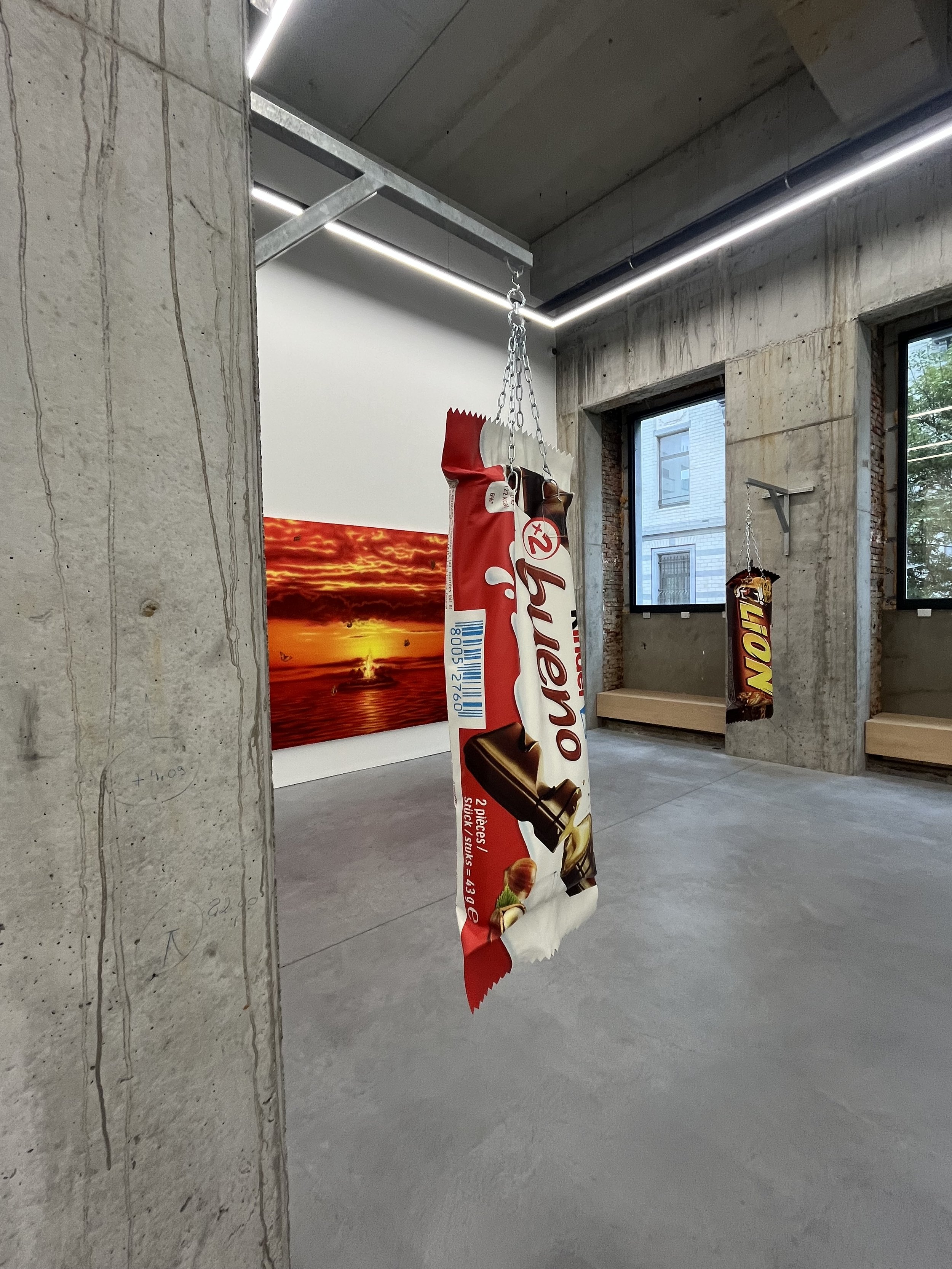Le Soleil n’existe pas
The Bittersweet Illusion of Consumerism
The exhibition ‘Le Soleil n’existe pas’ by artist Leo Luccioni feels like walking through a candy store of a kids dream. The subjects of the artworks are popular snacks like Mars, Kinder Bueno and Cheetos. You feel happy and instantly drawn to the installation of mega-sized snacks. Then it hits you: you are just like the monarch butterflies in the paintings, irresistibly drawn to the lure of sugary packaging, caught in the trap of artificial, mass-produced goods.
In his ‘Nature Morte?’ series, Luccioni examines the impact of the consumer culture on nature. Monarch butterflies symbolize nature’s vulnerability. These butterflies, seduced by sugary packaging in vivid, hyperreal colors, find themselves trapped in a cocoon of industrialized beauty. Each piece critiques overconsumption and how globalization’s aestheticized products infiltrate our daily lives, presenting them as bright yet disposable relics of a throwaway culture. The butterflies drawn to these symbols of processed sweetness evoke the loss of nature in the wake of industry.
Luccioni’s use of the airbrush—a tool associated to 1970s advertising—adds a hyperrealistic appeal to his works that mirrors the captivating charms of consumer goods. This technique, made popular in graphic design and advertising, enhances the artificiality in each piece, emphasizing how consumer products are designed to captivate, even mesmerize, their viewers. Through this technique, Luccioni invites reflection on the line between genuine attraction and manufactured desire.
A standout piece in the exhibition, ‘Coucher de soleil’, challenges viewers to question the origins of light within its abstract landscape. Is the warmth a natural sunset, or does it reflect an artificial warmth, a fire far from nature’s touch? This ambiguity speaks to our uncertain relationship with consumer goods, which are often presented as "natural" or "authentic" yet wrapped in layers of synthetic appeal.
Luccioni deepens his critique of consumerism through interactive leather punching bags which invite physical engagement. These Lion, Leo and Bounty bar bags highlight the disposability and transient nature of consumer goods, designed to take blows as they reflect the aggression and frustration that may accompany our material desires. The punching bags extend the exhibition’s theme, emphasizing the tension between desire and detachment in a world of commodified allure.
‘Le Soleil n’existe pas’ presents a powerful commentary on the effects of capitalism, consumer desire, and environmental degradation, urging viewers to reconsider their relationship with the objects they consume. By proposing that the Sun does not exist, Luccioni suggests that the seemingly natural elements around us may in fact be artificial constructs, skewed by consumer culture and excess.
‘Le Soleil n’exists pas’ can be visited until from October 10 - November 16, 2024 at Stems Gallery.
4 Rue Du Prince Abert - 1050 Brussels - Belgium
Photos (c) Cultuurtoerist



















